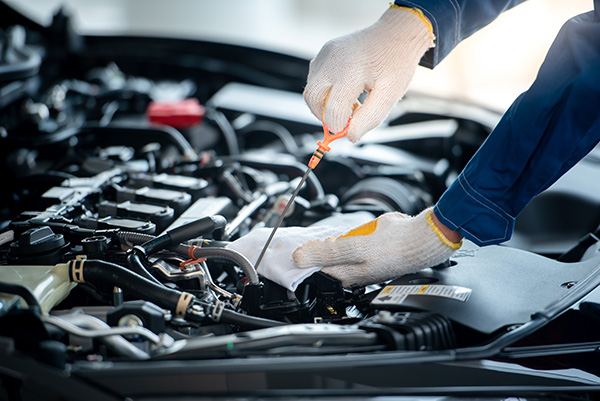
Taking care of your car goes beyond just filling the tank and driving. Keeping your vehicle in top shape involves regular maintenance, and one of the most essential services is a tune-up. If you’re wondering what a car tune-up is and why it matters, you’re at the right place. Let’s break it down and explain why a car tune-up should be on your maintenance checklist.
What Exactly Is a Car Tune-Up
A car tune-up is a routine service designed to ensure that your engine runs efficiently and smoothly. It involves inspecting and replacing certain parts of the engine that tend to wear down over time. While the specific tasks may vary depending on your vehicle's make, model, and age, a standard tune-up generally focuses on three key areas: the ignition system, the fuel system, and overall engine performance.
During a tune-up, a technician will often replace worn-out parts like spark plugs and air filters, check the fuel injectors, inspect belts and hoses, and ensure that your vehicle’s sensors are working properly. In some cases, the technician might also update your car's software to ensure it’s running efficiently.
Why Is a Car Tune-Up Important
Improves Fuel Efficiency
Over time, your car's engine can become less efficient, leading to a drop in fuel economy. If you notice that you're visiting the gas station more often than usual, it might be time for a tune-up. By replacing components like dirty air filters or malfunctioning spark plugs, a tune-up can help your engine burn fuel more effectively, saving you money at the pump.
Extends the Life of Your Car
Regular tune-ups keep your car running at its best, which can help extend its lifespan. Catching small issues early on prevents them from turning into bigger (and more expensive) problems down the road. By investing in regular maintenance, you can avoid unnecessary wear and tear that might shorten the life of your vehicle.
Boosts Engine Performance
A tune-up ensures that your car’s engine is firing on all cylinders—literally. By replacing worn-out parts like spark plugs, your engine will run more smoothly, providing better acceleration and overall performance. If your car has been feeling sluggish or unresponsive, a tune-up could be the solution.
Reduces Emissions
Did you know that an inefficient engine can produce more harmful emissions? Regular tune-ups can help your vehicle run cleaner by fixing issues like clogged air filters or malfunctioning oxygen sensors. Not only does this benefit the environment, but it also helps you pass emissions tests required for vehicle registration in many areas.
How Often Should You Get a Tune-Up
The frequency of a car tune-up depends on several factors, including your driving habits, the age of your car, and its manufacturer’s recommendations. For older vehicles, it’s common to schedule a tune-up every 10,000 to 12,000 miles. Newer cars, with advanced engine designs and better components, may only need a tune-up every 30,000 miles or more.
The best way to know for sure is to consult your owner’s manual or speak with a trusted technician. If you notice symptoms like decreased fuel efficiency, trouble starting your car, or strange engine noises, it’s a good idea to schedule a tune-up sooner rather than later.
What Does a Tune-Up Include
- Spark Plug Replacement: Worn spark plugs can lead to misfires, rough idling, or difficulty starting the car. Replacing them is a key part of a tune-up.
- Filter Changes: Your air and fuel filters can become clogged over time, reducing efficiency. Replacing these filters helps the engine breathe and burn fuel more efficiently.
- Fuel System Inspection: A technician may clean the fuel injectors or adjust the fuel mixture to ensure the engine is getting the right amount of fuel.
- Belt and Hose Inspection: Over time, belts and hoses can wear out and crack, leading to bigger problems. Catching these early during a tune-up prevents breakdowns.
- Fluid Level Checks: Proper fluid levels are essential for your car’s overall health. During a tune-up, your technician will ensure that vital fluids—such as oil, coolant, and brake fluid—are at the correct levels.
Signs Your Car Might Need a Tune-Up
Not sure if your car needs a tune-up? Here are a few signs to watch for:
- Poor fuel economy
- Trouble starting your car
- Engine misfires or rough idling
- Loss of power or acceleration
- Dashboard warning lights coming on
If you experience any of these symptoms, it’s a good idea to get your vehicle checked out. Ignoring these signs can lead to more serious issues down the line.
Is your car due for a tune-up? Visit Elite Imports & Auto Repair for expert maintenance that will keep your vehicle in top shape. Call us or book online today!